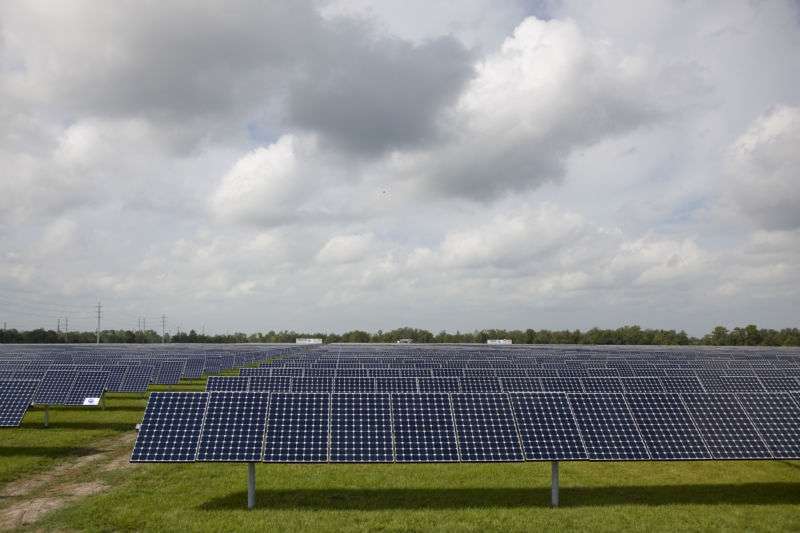
Florida utility to close natural gas plants, build massive solar-powered battery

On Thursday, Florida Power and Light (FPL) announced that it would retire two natural gas plants and replace those plants with what is likely to be the world’s largest solar-powered battery bank when it’s completed in 2021.
FPL, a subsidiary of NextEra Energy, serves approximately 10 million customers in Florida. The utility says its plan, including additional efficiency upgrades and smaller battery installations throughout its service area, will save customers more than $100 million in aggregate through avoided fuel costs. FPL also says its battery and upgrade plan will help avoid 1 million tons of carbon dioxide emissions.
The plan calls for the construction of a 409 megawatt (MW) / 900 megawatt-hour battery installation at what will be called the FPL Manatee Energy Storage Center. For context, the largest battery installation in the world was built by Tesla at a Hornsdale wind farm in South Australia; that has a capacity and power rating of 100 MW / 129 MWh.
The batteries will be charged by an existing solar plant in Manatee County, FPL said. Being able to store solar power in batteries is a huge advantage to the utility. Solar photovoltaic panels are intermittent sources of energy, because they only produce power when the sun is shining. Generally, that happens in the morning and toward the middle of the day, when power demand tends to be low. If a utility can store excess power in a bank of batteries, it can deploy that electricity later in the afternoon when people return home from work and turn on their air conditioners, running up electricity demand.
FPL did not state which company would provide its batteries, how much it would pay for them, or whether they would be lithium-ion batteries or use another chemistry. Lithium-ion batteries are currently the favorite of grid-scale chemical battery systems, however. This week, analyst firm Bloomberg New Energy Finance wrote that the cost of lithium-ion batteries has fallen by 35 percent since the first half of 2018.
The two natural gas plants that FPL will retire were built in the 1970s and have reached the end of their useful life. According to NextEra’s 2016 Annual Report (PDF), FPL generated 70 percent of its electricity from natural gas and four percent from coal. PFL has been on a course to change that over the past two years, however. The company says it has spent two decades on a modernization program to replace its legacy oil-burning plants with more efficient natural gas plants. Now, as natural gas is becoming a worst-offender in US carbon emissions sources, legacy natural gas plants are being replaced by cleaner sources.
“FPL also remains poised to eliminate its only remaining coal plant in Florida by the end of this year,” the utility’s press release said. “The company also shut down two coal plants in Jacksonville in 2016 and 2018, respectively, collectively preventing nearly 7 million tons of carbon dioxide emissions.”




